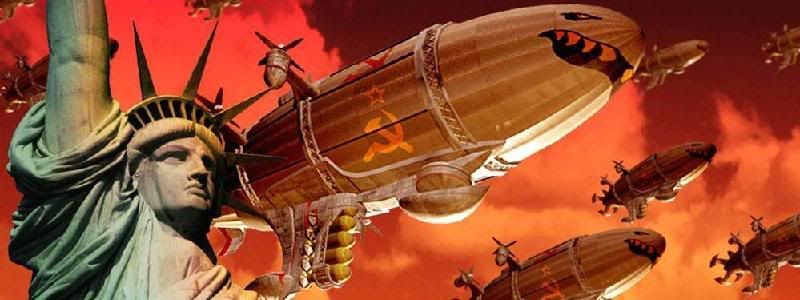We Didnt Start The Cold War

Chester, Martin, Spencer
3 Chubbies
1 Blog
5 Posts
Bold Italic Underlined Link
Tagboard
Kormrades
Edwin, Nicky and Shahid Don, Jonathan, Kang Raye and Shao Hao Beveryl, Dillon and Siong Gim Link Link
History
Culture during the Cold War
Outline:
The Cold War was reflected in culture through music, movies, books, and other media. One element of the Cold War often seen relates directly or indirectly to the threat of nuclear war. Another is the conflict between the superpowers in terms of espionage. Many works use the Cold War as a backdrop, or directly take part in fictional conflict between the U.S. and the U.S.S.R. The period 1953-1962 saw Cold War themes first enter mainstream culture as a public preoccupation.
The Cold War was also reflected in the attitudes of people in their everyday lives. In the United States, the Hollywood blacklist determined who would create, work on, and star in motion pictures; in politics the House Un-American Activities Committee questioned those thought to be communist sympathizers.
Hollywood blacklist:
The Hollywood blacklist—more precisely the entertainment industry blacklist, into which it expanded—was the mid-twentieth-century list of screenwriters, actors, directors, musicians, and other U.S. entertainment professionals who were denied employment in the field because of their political beliefs or associations, real or suspected.
Part of the list:
· Orson Bean - Actor and humorist known more for his TV appearances.
· Walter Bernstein - Nominated for an Oscar for writing The Front, the Woody Allen/Martin Ritt film about the blacklist.
· Peter Brocco - The late character actor appeared in 90 films between 1932 and 1991.
· Phil Brown - Actor who moved to England in 1953 to escape the blacklist and didn't return for 40 years.
· Howard Da Silva - Stage actor who was named by Robert Taylor before HUAC.
· Jules Dassin - Director (Topkapi) who went to France to work (he was born in Connecticut).
· Paul Draper - Tap dancer known as The Aristocrat of Tap.
· Jerry Fielding - Composer, blacklisted in Hollywood from 1953 until 1961. Nominated for three academy awards for Best Music.
· Will Geer - Actor, folksinger, and political activist who toured with Woody Guthrie. Best known for his TV role as Grandpa Zeb on The Waltons.
· Lee Grant - Actress blacklisted in 1951 after standing by her then-husband, playwright/screenwriter Arnold Manoff. Nominated for four Supporting Actress Oscars, winning one for Shampoo in 1975.
· Judy Holliday - Though not blacklisted, just being called to testify because of her socialist background was enough to damage her career.
· Marsha Hunt - Actress who was blacklisted along with her husband, writer Robert Presnell, Jr.
· Paul Jarrico - Screenwriter who wrote many screenplays under pseudonyms. See article below, plus PBS interview.
· Victor Kilian - Actor who turned to the stage after being blacklisted in Hollywood. Best known as Mary Hartman's grandfather on the TV show.
· Charles Korvin - Hungarian-born actor who appeared in several films and TV shows during the 50s, despite the blacklist.